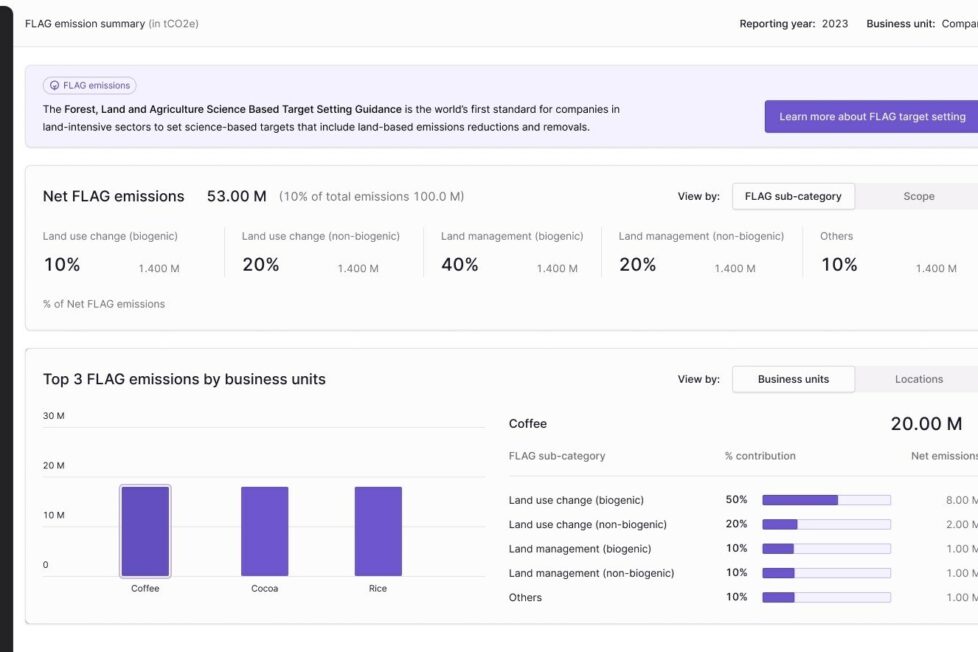Terrascope Launches Solution to Measure and Manage Forest, Land & Agriculture Emissions

Climate tech startup Terrascope announced today the launch of a new module on its enterprise decarbonization platform aimed at enabling the measurement and management of Forest, Land, and Agriculture (FLAG) emissions.
The forest, land and agriculture sector is one of the most significant sources of global greenhouse gas (GHG) emissions, second only to the energy sector, and is among the most difficult areas to address climate impact. The food and agriculture value chain contributes around a third of global emissions, primarily from upstream activities including deforestation, land use changes, and agricultural practices.
Launched in 2022, Singapore-based Terrascope provides an AI-powered decarbonization platform aimed at enabling enterprises to measure and reduce their Scope 1, Scope 2 and Scope 3 emissions.
According to Terrascope, the new module starts with FLAG screening, reviewing company operational and value chain models to determine FLAG exposure and the need for science-based FLAG targets, and provides a measurement tool for companies in need of these targets, covering land use change estimation and land management emissions from activities such as fertilizer application, farm activities or livestock rearing.
Terrascope said that its approach includes compliance with the Science Based Targets initiative (SBTi) and aligns with the new GHG Protocol for land sector removals, with the new module enabling enterprises to set SBTi-aligned FLAG targets, along with long- and short-term decarbonization plans.
The company added that the FLAG module can be used by enterprises to measure their decarbonization initiatives involving carbon sequestration and better land management.
Terrascope CEO Maya Hari said:
“We are excited to unveil our new FLAG module, to further support enterprises in the food & agriculture value chain on their decarbonisation journey. Food & Agri value chains represent approximately 30% of global emissions, with a majority of these emissions originating upstream, making it essential to have a precise understanding and management of land-related emission sources. Integrating FLAG capabilities into our platform is a pivotal step in enabling large enterprises to identify and act upon these land-related emissions more effectively.”